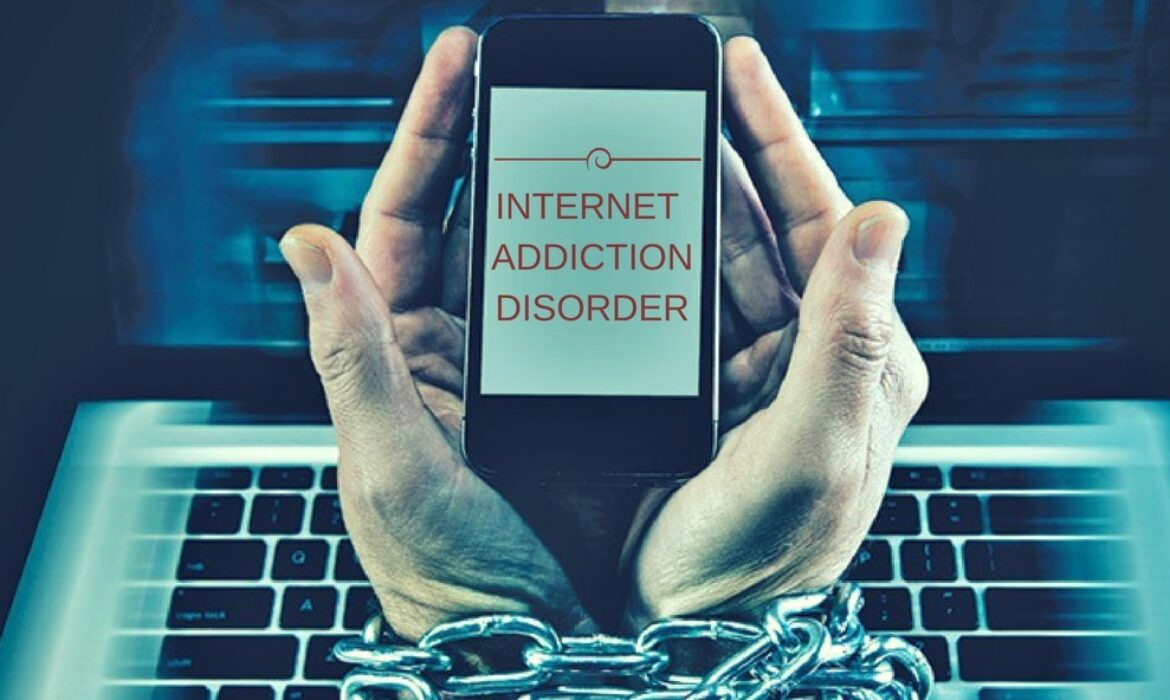
In today’s hyper connected world, the internet is a necessity. It’s truly become an indispensable part of our daily lives. From social media and streaming services to online shopping and online gaming; the internet offers us everything. However, as we enjoy everything the internet has to offer, a growing concern emerges amongst young people; internet addiction.
This modern phenomenon is often overlooked and dismissed as mere laziness and lack of self-control. But there’s people who see it for what it is, and it’s increasingly recognized as a serious psychological problem. Understanding its symptoms and developing effective strategies to manage and overcome it is crucial for maintaining our mental health, daily lives and overall well-being. Let’s dig into what internet addiction is, how to spot it and how to treat it.
What Is Internet Addiction?
Internet addiction is characterized by an individual’s inability to control their internet usage, ultimately leading to significant impairment of daily life or emotional distress. As of the time of this article, internet addiction is not officially recognized as a distinct disorder in the Diagnostic and Statistical Manual of Mental Disorders otherwise known as the DSM-5. However, many mental health professionals around the world acknowledge this phenomena’s existence and the severe impact it can have on a person’s life if left untreated.
Symptoms Of Internet Addiction
Like any other mental health or physical health problem, internet addiction can be identified through a series of symptoms. Here’s the most common systems of internet addiction:
- Excessive usage: Spending an unnatural amount of time online, often at the expense of other important daily activities such as work, school or personal relationships. It isn’t just mindlessly scrolling on social media. It’s the level of usage that consumes a person’s daily life with huge negative effects.
- Withdrawal symptoms: Experiencing anxiety, irritability and/or depression when unable to access the internet.
- Increased tolerance levels: The need to spend increasing amounts of time online to feel the same amount of satisfaction or excitement as they did in the past.
- Neglect of other once enjoyable activities: Abandoning hobbies, physical activities and social interactions in favor of internet use.
- Impaired daily function: Struggling with normal life responsibilities and experiencing negative consequences in many aspects of their life all due to their excessive internet use.
The Psychological Factors
Several psychological factors contribute to the development of internet addiction, often creating the compelling urge to stay online:
- Escapism: The internet offers a convenient escape for anyone with an internet connection. That escape comes in the form of escaping real-world problems, allowing the individual to immerse themselves in virtual worlds where they can temporarily forget all of their worries.
- Social connectivity: For some people, online interactions provide a sense of belonging and acceptance that they might not be able to find in face-to-face interactions.
- Instant Gratification: The internet delivers immediate emotional rewards from likes and comments on social media to instant information and entertainment that therefore reinforces habitual use.
- Dopamine release: Engaging in pleasurable online activities triggers the release of dopamine in their brain. Dopamine is a neurotransmitter closely associated with pleasure and reward. which can create a cycle of dependency of their internet connection.
Strategies For Managing Internet Addiction
Addressing your internet addiction requires a special approach with many steps. Here’s some strategies that can help:
- Set time limits: Preset specific times for essential internet use and stick to them. Use apps or built-in tools to track and then restrict your screen time.
- Prioritize offline activities: Rediscover hobbies or physical activities that you once enjoyed that do not involve the internet. Whether it’s reading, going to the gym or cooking, find ways to replace online time with offline fun. Go a step further by scheduling regular offline activities to get into a routine.
- Create internet free zones: Designate certain areas of your home, such as your bedroom or dining room, as internet free zones to help you stick to prioritizing offline activities.
- Practice mindfulness and self-care: Mindfulness techniques, meditation, yoga, and regular physical exercise can help reduce stress and improve your overall mental health. Which will make it easier to manage your internet usage.
- Seek professional help: If your internet addiction has spiraled out of control or significantly impacts your daily life, consider seeking help from a mental health professional. They can guide you and provide you with the tools to take your life back.



